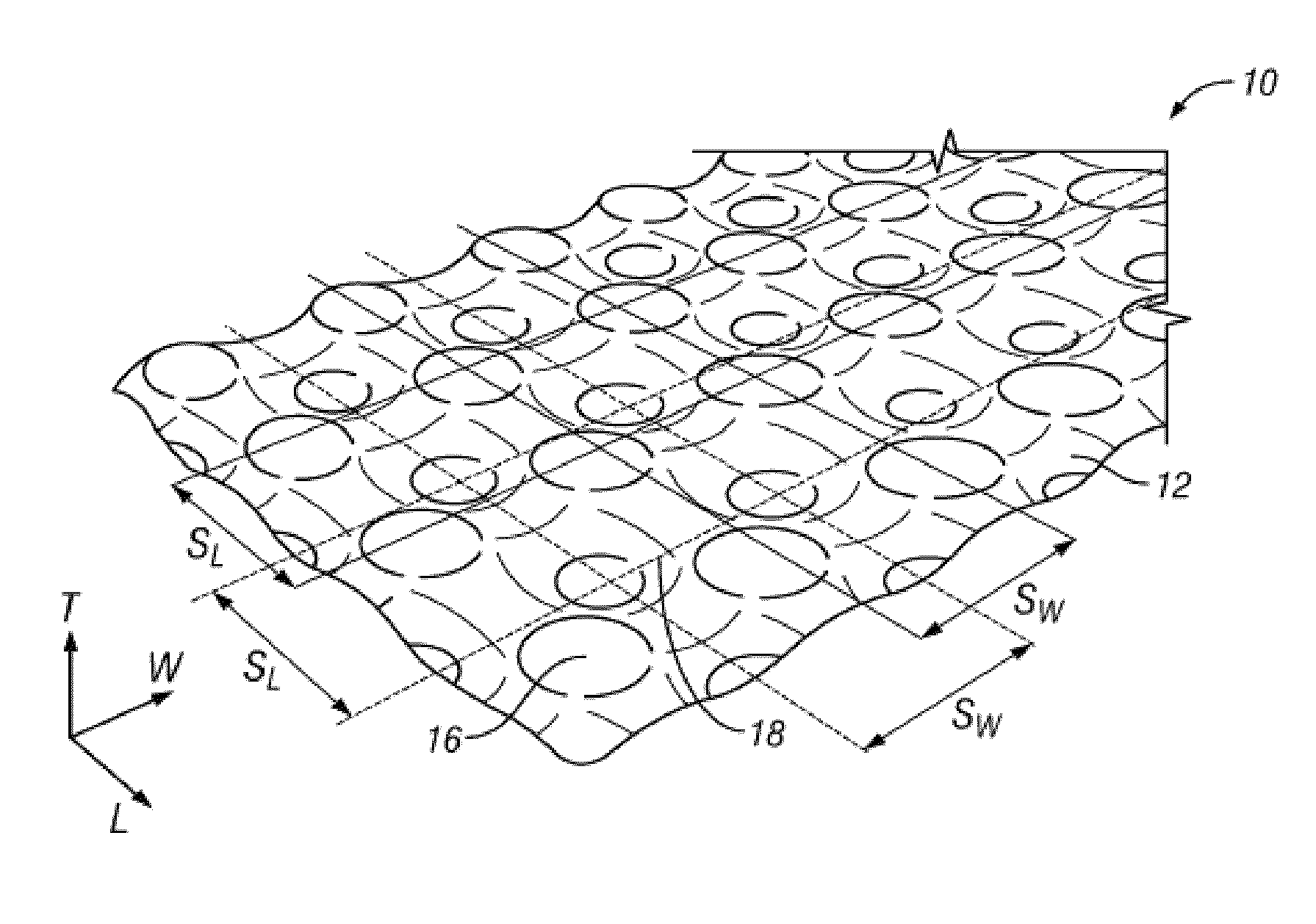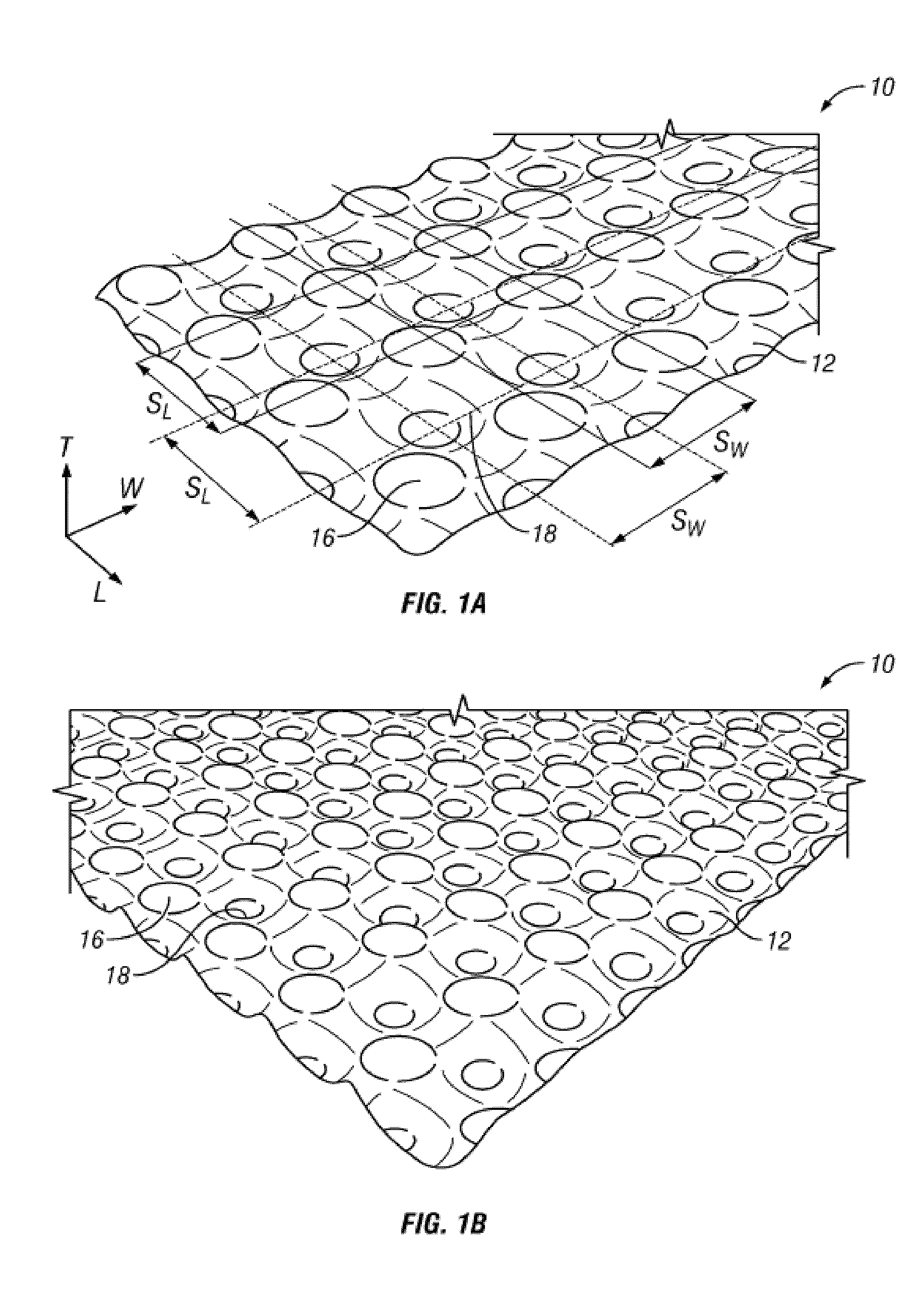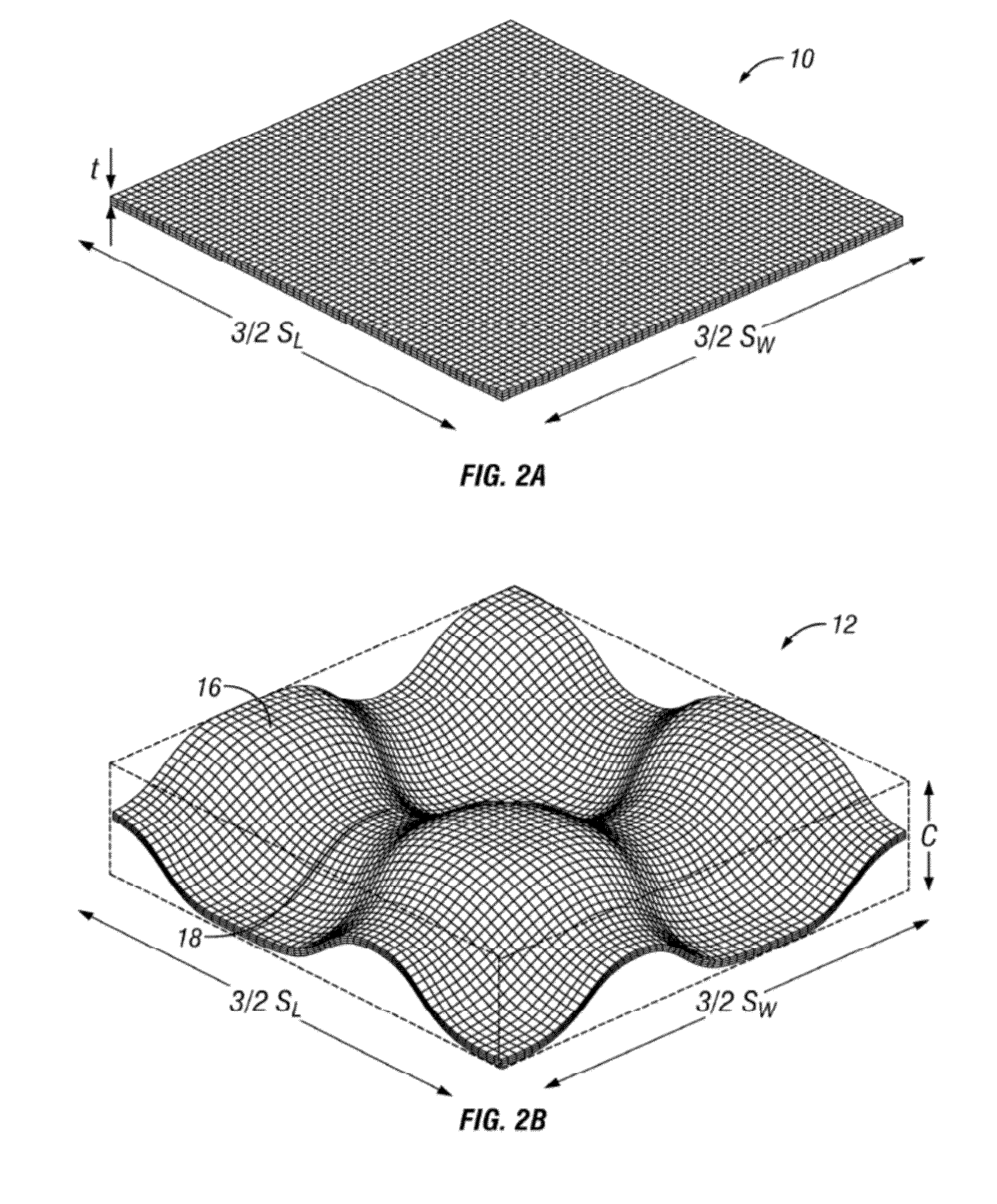Optimal sandwich core structures and forming tools for the mass production of sandwich structures
a sandwich core and sandwich technology, applied in the direction of layered products, transportation and packaging, chemistry apparatus and processes, etc., can solve the problems of poor the inability to manufacture metallic honeycombs in a cost-effective mass production process, and the inability to meet the requirements of weight specific mechanical performance, etc., to achieve cost-effective effects
- Summary
- Abstract
- Description
- Claims
- Application Information
AI Technical Summary
Benefits of technology
Problems solved by technology
Method used
Image
Examples
example 1
[0054]FIGS. 1A and 1B show a prototype which includes corrugated layer 12 structures which has been made through a) stamping, b) progressive stamping. A 0.2 mm thick commercial grade steel has been used as basis material. It is stamped into an corrugated layer 12 layer of a total thickness of a) 4.3 mm and b) 5 mm.
example 2
[0055]A prototype is shown in FIG. 7 where the total thickness of the sandwich panel is 6 mm. The basis material of the core and the skins is 0.4 mm thick aluminum.
[0056]In one embodiment of the present invention, two critical failure mechanisms of the sandwich structure with an corrugated layer 12 structure, as is shown in FIG. 7, are face sheet buckling and delamination. FIG. 8 is a schematic of a pin pattern of one sheet of the pin structure that is used to create the corrugated layer 12 structure in one embodiment of the present invention. The pin structure includes two sheets of pins 30 that are pressed together with a layer of material between them to form the corrugated layer 12 structure (FIGS. 9A and 9B) FIG. 9A shows the essentially flat layer while FIG. 9B illustrated the formed corrugated core. Both the bonding land areas A1, A2 and the distances SL, SW between the neighboring pins define the corrugated layer 12 structure. FIGS. 11A and 11B show similar pins except that ...
example 3
[0058]This example illustrates embodiments of a tool 31, FIGS. 12 and 13, that can be used to make the anticlastic core 12 structure through embossing. In this embodiment, three coils, 34-36, are shaped by teethed shaping members 38, two adhesive roll coating members 40, various rollers 42 that serve as guides, and a laminating device 44 to application one or more layers of lamination to the core structure 12.
φ=dblS
the difference between the diameter of the flat area of the pins dbl in the pin structure that create the bonding land areas (e.g. A1 and A2) in the anticlastic core structure and the distance S. In one embodiment, φ is greater than or equal to 0.05 and less than or equal to 0.4. In another embodiment S is greater than or equal to 10 mm and less than or equal to 50 mm.
[0059]FIGS. 15A and 15B are plots of the transverse shear modulus and shear strength of the sandwich structure using an anticlastic core structure as a function of S and φ. In one embodiment of the invention...
PUM
| Property | Measurement | Unit |
|---|---|---|
| distances | aaaaa | aaaaa |
| distances | aaaaa | aaaaa |
| porosity | aaaaa | aaaaa |
Abstract
Description
Claims
Application Information
 Login to View More
Login to View More - R&D
- Intellectual Property
- Life Sciences
- Materials
- Tech Scout
- Unparalleled Data Quality
- Higher Quality Content
- 60% Fewer Hallucinations
Browse by: Latest US Patents, China's latest patents, Technical Efficacy Thesaurus, Application Domain, Technology Topic, Popular Technical Reports.
© 2025 PatSnap. All rights reserved.Legal|Privacy policy|Modern Slavery Act Transparency Statement|Sitemap|About US| Contact US: help@patsnap.com



